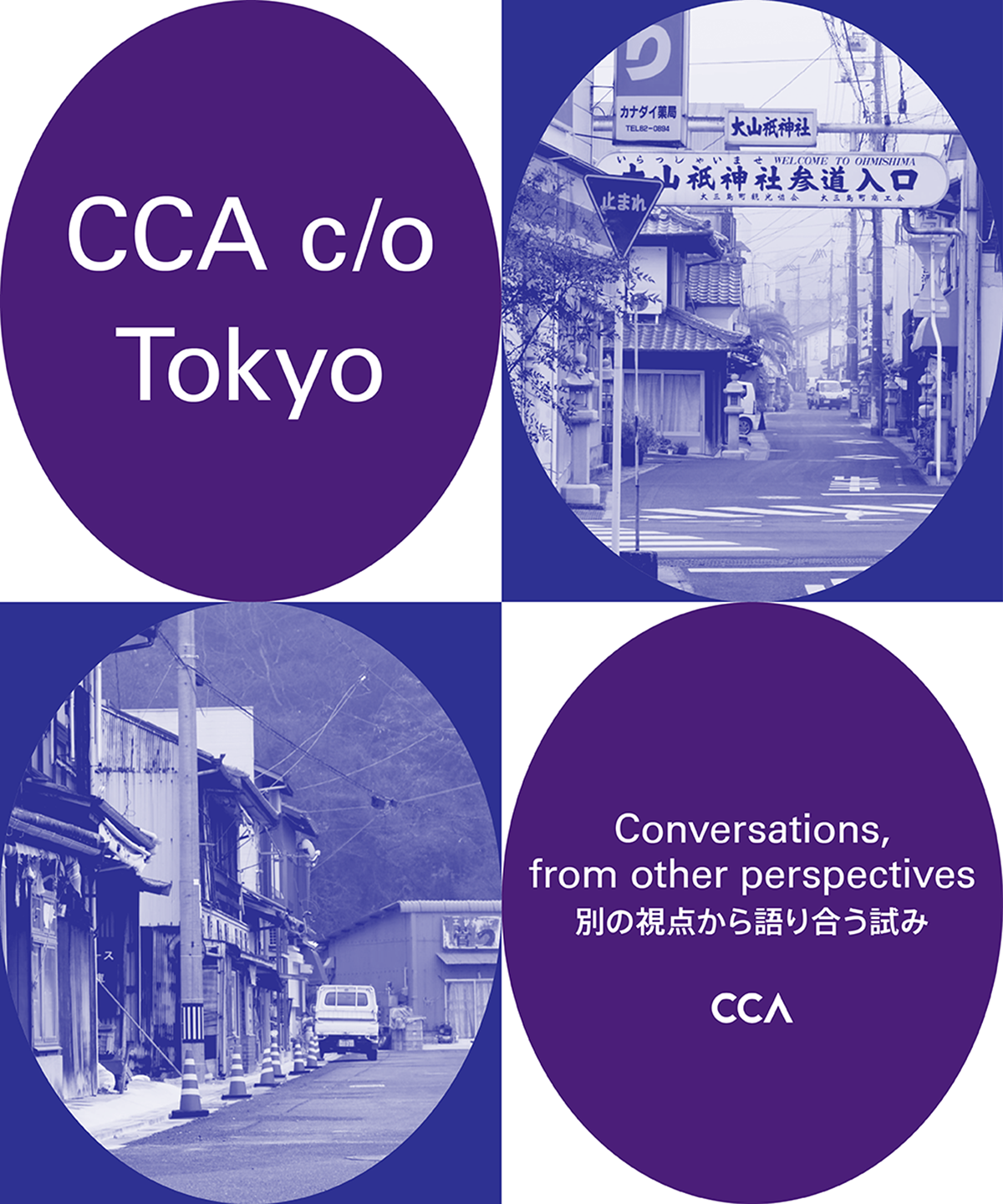Conversations, from other perspectives
Soukairou Hall, GRIPS, Tokyo
Today international institutions must be thought of as networks, not buildings. Even institutions concerned with architecture. In fact, the physical infrastructure and subservient relationship of museum franchises and satellites doesn’t interest us at all. What we are interested in is different ideas and perspectives emerging from different cultures and places. That is why, two years ago, we started a new initiative called CCA c/o, and now, after Lisbon, we embark on our second iteration, in Tokyo.
CCA c/o is a series of temporary initiatives that are locally anchored, moving from city to city worldwide. Agile and informal, CCA c/o sets down where an interesting architectural discussion is taking place and where a sympathetic accomplice can offer a unique perspective. They can be independent curators, architects, journalists, photographers, and editors—or other interesting figures we find along the way. Regardless, we welcome them as part of the CCA. Sometimes we host them, other times they host us. CCA c/o is a tool to reveal issues of general relevance that emerge from different contexts than our own, and a strategy for defining new thematic explorations and adding new perspectives to ongoing conversations. We like to think of it as an experiment in transforming ourselves.
CCA c/o Tokyo (2018-2019)
For CCA c/o Tokyo, we are working with curator and editor Kayoko Ota. The first result of this collaboration is a documentary series on what she calls the posturban phenomenon in Japan. We released the first two in the series, which feature Toyo Ito on the island of Omishima and Atelier Bow-Wow in the fishing village of Momonoura. Over the next two months we’ll continue to release new episodes that trace the work of Kazuyo Sejima, Toshikatsu Ienari, and Hajime Ishikawa in small villages across Japan. Islands and Villages anchors a new issue of our website that focuses on places beyond the metropolis: small and mid-size towns, agricultural regions, remote villages. The issue, What about the provinces?, also features a glossary of idiomatic misconceptions, a discussion on populism and rural politics, and, as a pendant to the documentary series, an essay by Ota that dissects the forces behind the posturban phenomenon in Japan. This year and the next, we will develop further research with Ota and she will facilitate public engagement with our projects in Tokyo.
On June 21 we officially launch CCA c/o Tokyo with an event in Japan. CCA Director Mirko Zardini and Chief Curator Giovanna Borasi together with Kayoko Ota will present the strategy, mandate, and ambitions of CCA c/o Tokyo. Photographers Naoya Hatakeyama and Takashi Homma, architects Go Hasegawa, Momoyo Kaijima, and Yoshiharu Tsukamoto will share their personal experiences collaborating with us to produce exhibitions, publications, and research. We will also screen the documentary series Islands and Villages. Thursday, June 21, 6:30–9pm, at the Soukairou Hall, National Graduate Institute for Policy Studies, Tokyo. Free and open to the public. Registration is required.
CCA c/o Lisboa (2016–2017)
For our inaugural program in Lisbon, we partnered with Artéria, an architectural studio led by Ana Jara and Lucinda Correia, to develop a series of public programs. In October 2016, a group of European researchers convened in Lisbon for a discussion around the work of Cedric Price, whose archive each researcher had explored previously at the CCA. The event coincided with the CCA’s participation in Obra / Building Site, an exhibition within the fourth Lisbon Architecture Triennale that featured Price’s McAppy project. In October 2017, CCA c/o Lisboa premiered a series of four films: oral histories with protagonists of the pioneering Open University arts course A305, conducted by Portuguese architecture historian and curator Joaquim Moreno and produced by the CCA for our exhibition The University Is Now on Air: Broadcasting Modern Architecture.
About the CCA
The Canadian Centre for Architecture is an international research centre and museum founded in 1979 by Phyllis Lambert, on the conviction that architecture is a public concern. Based on its extensive collection, exhibitions, public programs, publications, and research opportunities, the CCA advances knowledge, promotes public understanding, and widens thought and debate on architecture, its history, theory, and practice, and its role in society today. To learn more about the CCA and to hear from us, subscribe here.

